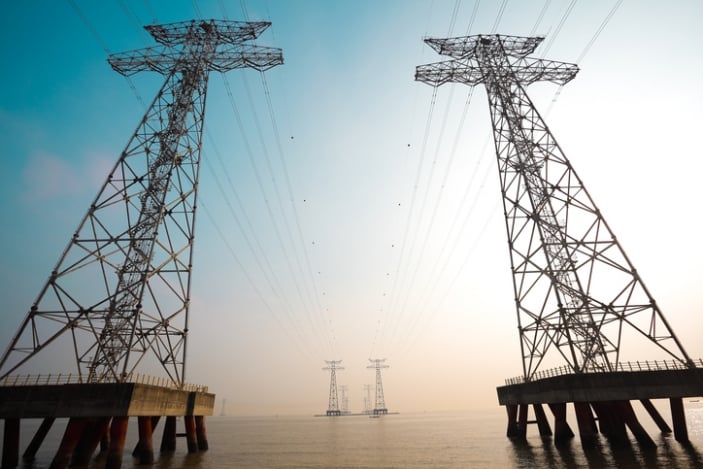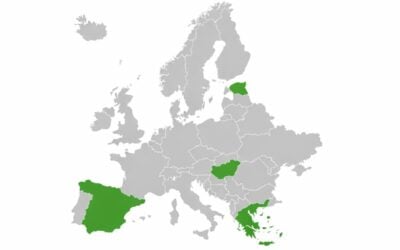
The British government Department for Business, Energy and Industrial Strategy (BEIS) and energy regulator Ofgem have today released plans for a major upgrade of the UK’s energy system.
Within the document, published this morning alongside a major investment programme for battery storage and electric vehicles, the duo have outlined how it intends to stimulate a drastic modernisation of the UK’s energy market, both on networks and in homes and businesses. Politician Greg Clark, the UK’s business secretary said a smarter, more flexible energy system would make sure the country was “fit for the future”.
The report – dubbed ‘Upgrading Our Energy System: Smart Systems and Flexibility Plan’ – is the result of last year’s Smart Power Call for Evidence and outlines a raft of measures which it said had the potential to save consumers as much as £40 billion (US$52 billion) in energy costs by 2050.
It focuses predominantly on three key areas, including the removal of barriers to storage; enabling smart markets and businesses; and making markets work for flexibility.
Try Premium for just $1
- Full premium access for the first month at only $1
- Converts to an annual rate after 30 days unless cancelled
- Cancel anytime during the trial period
Premium Benefits
- Expert industry analysis and interviews
- Digital access to PV Tech Power journal
- Exclusive event discounts
Or get the full Premium subscription right away
Or continue reading this article for free
Some of the more notable decisions include:
- Ofgem’s Targeted Charging Review to address the “disproportionate” recovery of network costs from some generators. Ofgem is to announce shortly details regarding the scope of that review.
- The Electricity Act 1989 will be amended “when parliamentary time allows” to include a definition of electricity storage – something the industry has been angling for, for some time, and not just in the UK.
- Both the planning regime and the grid connection process will be assessed and simplified to make it easier for battery storage facilities to be approved and developed.
- Ofgem will consult in the coming months on a proposed modified generation licence for battery storage, which will remove the final consumption charges storage facilities currently pay – putting an end to so-called ‘double charging’.
- BEIS and Ofgem will make it clearer which renewable generators can be co-located with retrofit battery storage systems without any impact on subsidy-backed revenue streams currently in place, including the Renewables Obligation (RO), feed-in tariff (FiT) and Contracts for Difference (CfD) schemes.
While all of the above are likely to be welcomed with open arms, one of the more contentious topics addressed in the document is the notion of network companies owning and operating energy storage assets for their own flexibility needs.
Ofgem has stressed that it does not consider it appropriate for network companies to do so, considering the potential for ownership to impede on an open, competitive marketplace.
As a result, Ofgem is to introduce new reporting requirements for distribution network operators who already own storage assets and has raised the prospect of further enforcement action in the future.

Smart homes and businesses
Meanwhile, the document also signals a future vision for the introduction of smart and flexible networks behind the meter where it will look to bolster the ability of homes and businesses to aid the network.
Having already mandated for the installation of smart meters in every home and business by 2020 and the introduction of half-hourly settlement, BEIS and Ofgem will move to assess potential new standards for EV charging points and smart appliances.
Work will also be done on time of use tariffs, on which Ofgem is to soon publish a report on their feasibility, while peer-to-peer (P2P) energy trading networks are also of interest.
Industry welcomes energy storage funding
Meanwhile, today’s government funding and R&D announcements by business, energy and industrial strategy (BEIS) secretary Greg Clark have been welcomed as a “fantastic move” towards a modern, smart and flexible energy system.
Around £246 million (US$320 million) is to be deployed under the Faraday Challenge, which will see funding competitions carried out over four years in research and development, innovation in commercial applications and scalability of production.
- Juliet Davenport, chief executive of renewable energy utility Good Energy:
“This is a fantastic move by government and an exciting moment for the UK’s renewables industry. To deliver the low carbon economy of the future we have to embrace a new, smart energy system and battery technology will be at the heart of that.
“Backing innovation in energy storage, as well as more support for offshore wind projects and electric vehicles, will not only attract investment into the UK, create new jobs and increase export opportunities, it will also make sure we have a healthy and greener economy and environment. The move to a 100% renewable future is possible.”
- UK Power Networks, the UK’s largest electricity distribution operator, recently set out its vision for the future through its DSO transition plan which is intended to enable customers to benefit from new technologies including generating, storing and selling their own electricity. Basil Scarsella, chief executive of UKPN, said today’s news of cooperation across all industry will help to manage this transition for the benefit of the country.
“We are on the verge of a change as significant for electricity as the advent of broadband was for telecommunications. We are already transforming our networks to be smarter and more flexible, and are currently consulting on our vision for the smart grid of the future. Working together with Government, the regulator, academia and other stakeholders we believe this transformation will unlock significant benefits for consumers,” he said.
- Scott McGregor, chief executive of flow machines manufacturer redT Energy, agreed:
“We welcome today’s announcement by BEIS and believe the Faraday Challenge has the potential to be the catalyst the UK renewables market needs to ensure greater adoption of energy storage technologies.
“It is vital that industrial-scale energy storage machines are looked at as a serious low cost way to decarbonise the UK economy and support the grid. The UK has an abundance of world leading talent and technological know-how when it comes to energy storage technologies, so the time to utilise this resource to solve UK domestic energy security as well as build our technology manufacturing export sector is now.”
- While welcoming some elements of today’s announcements, particularly the launch of a battery institute, the Renewable Energy Association’s head of policy and external affairs James Court said much more was needed.
“The UK is among the global leaders for battery technology, but for the handbrakes to be taken off we need to see the rules and regulations made in a different age updated for these new technologies and approaches, coupled with a renewed commitment to renewables.
“The market is changing quickly, yet reversals in policy have seen the UK slowing in areas such as solar and onshore wind which are now cheaper than fossil fuels. The government needs to remember that the success of batteries, renewables and smart technologies are all interlinked.”
‘Industry welcomes energy storage funding’ section by David Pratt.





